Ultimate Guide to Christian Apologetics and Defending Your Faith (FULL)
October 28, 2019

Why are you a Christian?
Is it because you were just brought up in the church? Are there reasons or evidences that support your convictions?
Until I discovered apologetics, I didn't have any reasons. But once I found apologetics, my eyes were opened to a whole new world.
I began reading books by the dozens, over the last few years, and I am going to share with you, step-by-step, what I learned from all those hundreds and even thousands of pages of books, in this single blog post.
If you would like to go straight to a certain section, here is a table of contents below:
- 1. What is Apologetics?
- Are There Any Christians Who Actually Have PhDs?
- 2. YEC vs. OEC
- 3. What is Truth?
- Self-Defeating Statements
- Objective vs. Subjective Truth
- 4. Morality Points to God
- Moral Relativism
- The Moral Argument
- But Why Does God Allow Evil?
- Love Requires Free Will
- I Decide My Own Morality
- Maybe Society Determines What's Right and Wrong
- 5. The Big Bang
- What is Cosmic Background Radiation?
- Are There Possible Models Other Than the Big Bang?
- 6. Problems with Darwinian Evolution
- Macroevolution vs. Microevolution
- The Cambrian Explosion
- So-Called Icons of Evolution
- Specified Complexity of DNA
- The Watchmaker Argument
- What are Irreducible Complexities?
- 7. Fine-Tuning
- 8. Did Jesus Claim to Be God?
- Who is the Son of Man?
- Either Lord, Liar or Lunatic
- Jesus Fulfills Prophecy
- 9. Jesus' Life, Death and Resurrection
- Resurrection Alternative 1 - Hypnosis Theory
- Resurrection Alternative 2 - Swoon Theory
- Resurrection Alternative 3 - The Disciples Stole the Body
- 10. Reliability of the New Testament
- Who Were the Gospel Writers?
- Manuscripts
- Chester Beatty Biblical Papyri
- Rylands Papyrus P52
- Early Church Fathers
- 11. Biblical Archaeology
- See Our Apologetics Board Game
1. What is Apologetics
So let's start here: what is apologetics? Who is an apologist?
Apologetics comes from the Greek word, 'apologia', which means 'to make a defense of' and shows up in 1 Peter 3:15, amongst other places.

So we are called to be ready to give a defense, or reasons, for our faith in Jesus Christ.
Are There Any Christians Who Actually Have PhDs?
There is a certain stigma prevalent in the media which is that smart people don't believe in God. This is completely false of course.
Some of the greatest minds in human history have been believers, people like Pascal, Galileo, and even Isaac Newton.
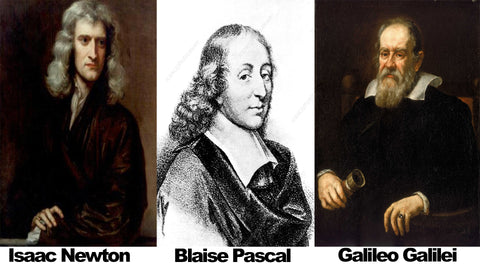
The idea today that is being pushed is that people who believe in God are just superstitious, or kind of wacky, and there are no actual scholars or doctors who believe in Jesus.
Well that's wrong, very wrong.
There are numerous Christian Ph.Ds, who are some of the smartest people in the world, including Dr. Hugh Ross who is an astrophysicist, and Dr. John Lennox who has 3 earned doctorates and is a professor at Oxford.
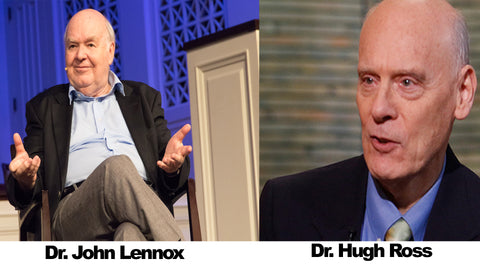
And on the topic of Christian apologetics, I would like to give you a list of some of the top apologists in the world. Some debate at universities, and others write influential books.
Our list includes (in no particular order) Frank Turek (CrossExamined.org), Ravi Zacharias (RZIM.org), Lee Strobel, (LeeStrobel.com) J Warner Wallace (ColdCaseChristianity.com) and William Lane Craig (ReasonableFaith.org).
Here is a video that talks about some of these top apologists in the world:
OK, now that you are somewhat familiar with what apologetics is, and who some of the top apologists are, let's get into some apologetic content.
We will start basic, addressing what the different belief systems are.
What does it mean to be an atheist, or an agnostic? We break down these different belief systems in this quick video below:
2. YEC vs. OEC
For this section, we are going to be breaking down some of the key differences between YEC (Young Earth Creation) vs. OEC (Old Earth Creation).
Young Earth Creationists (YECs) are individuals who believe in a Genesis account referring to a 24-hour day.
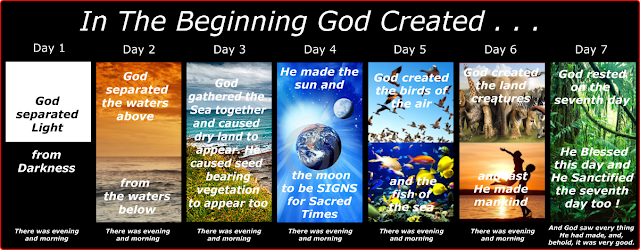
When Moses, who is generally seen as the one who wrote the Pentateuch (the first 5 books of the Old Testament), is recording these events, he is recording them as Day 1, Day 2, etc.
Well, Young Earth Creationists (YECs) believe each day recorded is a 24-hour day. Old Earth Creationists (OECs) believe that it refers to a period of time.
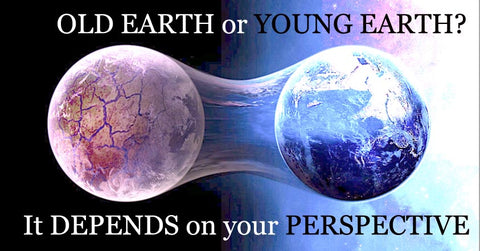
Here's why.
The word that is used in the book of Genesis to refer to day is the Hebrew word, "yom", Now, the literal definition of this word is, "a collection of".
So literally, the Genesis account reads, "On Day 1 (collection 1), on Day 2 (collection 2) etc..."
Interestingly, in almost all cases in the Bible, when there is a number next to the word, "yom", it is referring to a 24-hour day. However, this is not true in ALL cases in the Bible, but most of them.
Here is a picture of the word yom, written in Hebrew, from Answers in Genesis, a very popular Young Earth website that is worth checking out, started by Ken Ham.

OECs would say that Moses, who was recording this (who lived around 1400 to 1500 BC), was not around at the beginning of the universe (obviously). And God was showing him a collection of events, from the past, that had occurred.
OECs would say that God showed him the first collection of events (yom 1 (collection 1), then the second collection of events (yom 2 (collection 2)), and so on.
Just to reiterate, OECs believe that when God was showing Moses events from the past, he showed him on Yom 1 (collection 1), these events occurred, on Yom 2 (collection or day 2), these events occurred, and so on.
Now it is important to understand that OECs are still Christians, they are still people who believe in Christ.
When I first started learning about apologetics, and someone would say that the universe is older than 10,000 years, I would cry, "Heresy!" because I didn't understand that, again, the Hebrew word used for day (yom) literally means "a collection of".

So again, YECs believe the universe was created in 6 literal 24-hour days, and that the universe is around 6 to 10,000 years old. And OECs believe the universe could be millions or billions of years old. And these are the main two beliefs, but of course there are also Christians (who love Jesus) who believe it is somewhere in the middle (maybe hundreds of thousands of years old).
Now of course God could have created the universe in 6 days, He could have created it in 6 seconds, God is God.
It is also important to make the distinction between OECs and Darwinian Evolutionists or Theistic Evolutionists (those who believe that humans still evolved into becoming humans from an earlier species similar to apes).
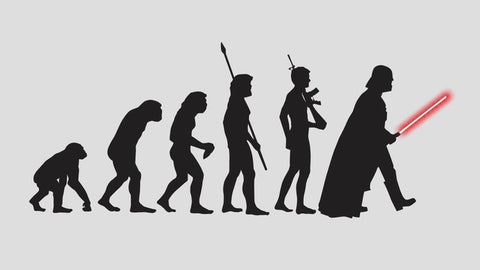
I am not going to get into refuting Theistic Evolution in this blog, but just know that if you want further understanding of it, there is a 1,200-page book called, "Theistic Evolution," that critiques this belief.
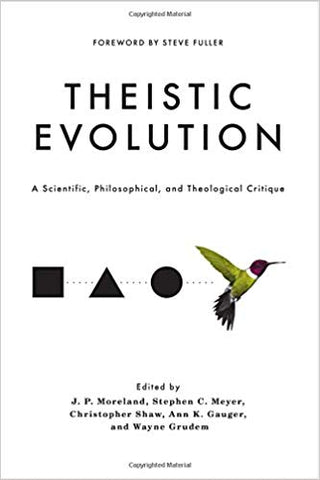
It is important to note that all of Cosmology (the study of the origin of the universe), and all of geology (the study of the earth's physical structure and substance) seem to point to an old earth (that the universe is older than 6 to 10,000 years old).
However, YECs will say that's because God created the universe with the "appearance of age". Just as God created Adam and Eve, not as babies, but as adults, He did the same with the universe.
YECs would point to issues with carbon and radiometric dating that have occurred, like trees being planted 40 years ago, which go through a strong storm, and then are carbon-dated, and show to being millions of years old. And YECs will point to the flood as the tumultuous event that made everything appear to be older than it is.
Here is a video we put together that explains a bit more what carbon dating is, as well as provides a more in-depth understanding of the topic:
So OECs are pointing to carbon and radiometric dating to substantiate their beliefs, while YECs are showing that these methods are unreliable.
There are many different directions you can go with this. People will quote 2 Peter 3:8, to show that there are differences in our understanding of time and that of God.

And when you begin to study Relativity and see how time itself was created, and that time can be different from different relative view points, etc. things can get very tricky. But we are not going to get tricky, because this is more of an introductory blog.
The important thing to understand is that there are 2 primary beliefs (within the Christian community) for how the universe came about, and with both views the Christians are true and sincere, and both have good and interesting reasons for their beliefs, and it is worth studying the evidence for yourself.
We don't know exactly when it was created, but we know WHO created it, and that God created us in HIS image, that we didn't evolve from ape-like ancestors, but that God truly created us.
Here is a video we put together which goes over what we have just discussed.
3. What is Truth?
Can truth be known? What is truth?
Many moral relativists (whom we will talk about in the next section) would say that truth cannot be known, or that all truths are equal.
Well to make the "truth statement" that "truth cannot be known" is actually what's called a "self-defeating statement" (a statement is self-defeating if it does not satisfy itself).
Here is a video which breaks down some of these key concepts:
Self-Defeating Statements
To say "truth cannot be known", you are making a "truth statement" that there is no such thing as truth. Another example of a self-defeating statement is the statement, "Science is the only begetter of truth". Why?
Because you are making a statement (science is the only begetter of truth) which cannot be tested under a microscope, or through the scientific method. Therefore your own statement must not be true, according to your own standards. See the contradiction?
Here is another short video, highlighting philosopher David Hume, that describes self-defeating, or self-refuting, statements:
Objective vs. Subjective Truth
Another important distinction to make when dealing with truth is differentiating between objective vs. subjective truth.
Objective truths are facts regardless of how you feel about them, while subjective truths are true about the subject making the statement.
For instance, to say, "Ice cream is great!" is a subjective truth because it is true about you, the subject, making the statement. But if you were to say, "This ice cream is made with cream," that would be an objective statement because it is true about the object (in this case, the ice cream), regardless of how you, the subject feels about it.
That can get a little hard to understand, so here is a video to better illustrate the point:
Here is a quick review of some of the concepts we have covered here in this section, as well as some of the ones we are going to cover in the next section:
4. Morality Points to God
What is morality? Morality is made up of what we should and should not do. In this section, we will be going over why morality in our world is so important, and how it actually ends up giving concrete evidence that God exists.
Moral Relativism
In this section we will ALSO be talking about something called moral relativism, which is the belief that truth, knowledge, and morals all exist, and all are relative to particular cultures, particular, societies, or historical context.
So why should you know about moral relativists? Because they are running rampant all over our college campuses, media outlets, etc. Hey if it feels right to you, then it must be right, right?
WRONG, WRONG, WRONG!
Moral relativists believe that there is no absolute truth; that there is NO RIGHT OR WRONG. Here is a video that illustrates how ridiculous that ends up being:
Christians of course believe that there IS an absolute Creator, and that He DOES have absolute truth, which He has revealed to us through His Word.
Moral relativists would say that each society has its own truths, as well as each culture, and that truth can differ in different time periods. They would say that no one truth is superior over another truth.
But if they believe no one is objectively right or wrong, then that means Hitler was just as good as Mother Teresa, and vice versa.
Here is a video which illustrates this point:
There is a great book on understanding moral relativism and how to break it down, by Dr. Francis J. Beckwith and Gregory Koukl, called, "Relativism: Feet Firmly Planted in Mid-Air". Here is a quick video where I show the book:
The Moral Argument
The moral argument is perhaps the best argument someone can offer for the existence of God.
However, before I show you the moral argument, we must discuss what are called, "objective moral values", or "objective morality". These are things that all cultures, across the world would see as objectively wrong.
This means that it doesn't matter what culture you are apart of, everyone would see something like murdering children, or raping 3-year-olds for fun, as objectively morally wrong.
So that would mean that objective moral values DO exist. Now for the moral argument.
It is a 3-part argument and goes like this:
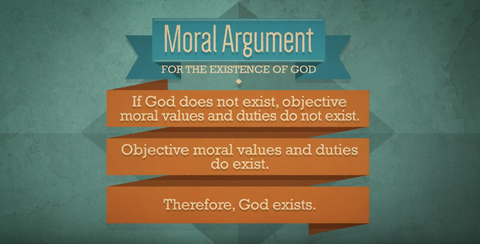
The distinguished philosopher, Dr. William Lane Craig, whose website ReasonableFaith.org is an absolute gem, explained this argument further in this video:
Dr. Craig has said in many interviews that this is one of, if not his favorite go-to argument, when presenting at college campuses and debates throughout the world.
But Why Does God Allow Evil?
The problem of evil is a serious one. How could a good and loving God allow evil in His world? Well the emotional side of the answer is not such an easy one. It is never easy to comfort someone who has just encountered great loss.
However, logically speaking, the answer is pretty simple. You see, people look at evil in the world, and say, "How could a good God allow all this evil?"
But logically, the answer is actually pretty straight-forward. The fact that there is evil in the world actually points TO a God. Here's why.
If there's evil in the world, then there must be good in the world (because otherwise how would you even know what evil was without knowing what good is). If there is good and evil, then there must be a moral law, something that distinguishes between good and evil, right and wrong.
If there is a moral law, then there must be a moral Lawgiver, someone who established that moral law in the first place. Thus, God. Here is a quick video that explains the concept a bit more:
Love Requires Free Will
The other thing you must understand is that love actually requires free will. Without free will for us to choose our own actions, (even if our actions are wrong) love would not exist.
Let me give you an example: If I tie my wife up in a room, in order to keep her from leaving me, would I ever really know that she truly loved me?
No I wouldn't because I would be forcing her to stay with me. In the same way, God did not create robots, but free beings, who can choose to follow Him, or choose to disobey Him, but either choice is made by the person's own free will, as you will see in this quick video:
Does God send people to hell? Well, ironically, we actually choose hell, and God respects our decision. I explain why in this quick 1-minute video:
I Decide My Own Reality
This is called "I Say Morality", also known as individual ethical relativism, or ethical subjectivism. This teaches that individual preferences offer the only guideline to behavior. So what I think is right must be right, because it is my opinion.
The problem with this is when what I feel is right or wrong conflicts with what someone else feels is right or wrong. I talk more about it in the quick video below:
If I decide what is right and wrong, what's to separate me from someone with no morality? Nothing. We both do what we think is right to do at the time, without answering to any transcendent reality of right and wrong (like God).
Maybe Society Determines What's Right and Wrong
Well some might argue that society is the one who determines what is right and wrong.
The problem with this argument can be clearly seen.
What about when your society is dead wrong (like slavery occurring in the U.S. in the past, or the horrific treatment of Jews in Nazi Germany). If the law of the land also determines what is right and wrong, and slavery is the law of the land, then to try and reform it would not only be unlawful, but morally wrong.
This is why we need God to determine right and wrong. Here is a short video that explains this concept:
5. The Big Bang
So what is the Big Bang?
Before I get into that, I just wanted to cover that there are either 1 of 2 possibilities for the universe: either the universe is eternal, or whatever or Whoever created the universe is eternal.
Well the Big Bang basically proves that the universe itself had a beginning, which means it is not eternal, which leaves only one option left...Whoever created the universe is eternal...God. Here is a quick video that goes over this concept:
Now let's talk about the Big Bang.
The Big Bang describes the moment when matter, space, and even time itself were first created. That's right, time...was...created. Let that sink in for a second.
Now if time never existed, then whatever created time had to be timeless. If space never existed, then whatever created space must have been spaceless. And if matter never existed, then whatever created matter must have been immaterial.
Who do we know that's timeless, spaceless and immaterial?
God.
Unless you think that this all just happened by chance, and that nothing created something.
Here is a quick video talking about how time had to be created by a timeless Being:
The term "The Big Bang" was actually first coined by Sir Fred Hoyle, although Hoyle said the phrase in a mocking tone.
He, like much of the scientific community at the time, actually believed the universe was static and eternal, that it had always existed.
However, after Edwin Hubble discovered the red shift of stars and galaxies in 1929 (showing the universe was expanding), and after the discovery of cosmic background radiation (heat and light from the Big Bang explosion), the scientific consensus became that time, matter and space were truly created at a single point in time.
All this Big Bang and scientific talk might get a little complex, so here is a video that will break down some of the definitions we are going to be covering in this section:
What is Cosmic Background Radiation?
The above video talks a bit about the cosmic background radiation from the Big Bang, and we also mentioned it above.
So what is the cosmic background radiation from the Big Bang? This quick video from our educational board game, gives a bit more information:
Are There Possible Models Other Than the Big Bang?
There are other models of the universe, besides the Big Bang, that some like to postulate, however the Big Bang is, in the scientific community and throughout the world, by far the most popular.
But I will cover a couple others in these next two quick videos, just so you have an idea of what they are.
The first is called the Oscillating Model, and I go over it in this quick video:
The next model is a bit more popular in the scientific community and is called the Multiverse Theory. I explain in greater detail below:
So now we know that science actually points to a moment when time, space and matter were created.
However, did God create it, or did it just evolve over time? In this next section, we are going to turn our attention to evolution.
In particular, we will discuss Darwinian Evolution, or macroevolution, which shook our world up when it was first proposed by Charles Darwin in 1859, in his book On the Origin of Species.
But is it true?
6. Problems with Darwinian Evolution
OK, so what do I mean problems with Darwinian Evolution? I mean, the majority of the scientific community vouches for this theory.
Well before I get into Darwinian Evolution, I need to define some key terms we are going to be going over. Who is Charles Darwin? What does evolution mean? What is natural selection? We will answer all these questions and more in this section's definitions video:
This science portion does have quite a few technical terms that it is important for you to familiarize yourself with as we dig further.
Now that you are a bit familiar with Charles Darwin, Darwinian evolution, and natural selection, I just have one more "definitions" video I would like you to watch that will help you better understand the upcoming science lessons.
So check it out:
Ok, now that you are up to speed on some of the key definitions you are going to need to be familiar with, let's proceed.
Macroevolution vs. Microevolution
When dealing with evolution, there is a key distinction that needs to be made at the outset, and that is between macroevolution and microevolution.
The reason this distinction needs to be made is because Christians believe in one kind of evolution (microevolution) and dismiss the other (macroevolution).
Why?
Because microevolution (like dog breeding (change within a species)) is proven and happens every day, while macroevolution (change outside of a species) is NOT scientific.
Here is a quick video for further explanation:
This topic (macroevolution vs microevolution) is not something you want to just gloss over. It is SUPER important.
Because Darwinian evolutionists (what they are teaching us in schools today) try to group them together all in one category called, "evolution". And if you don't differentiate them, then someone will say you are STUPID for denying evolution because change within a species is scientifically proven.
But that is not what you are arguing against. You, as a Christian, DO believe in microevolution (change within a species (dog-breeding)); it is macroevolution (change outside of a species (worms evolving into humans)) that we are arguing.
Again, they will try and tell you that there IS NO difference and that they both are under the same umbrella, but that is false.
The Cambrian Explosion
Staying on the topic of fossil evidence, let's go over one of the most shocking fossil discoveries called the "Cambrian Explosion".
The Cambrian Explosion basically disproves Darwin's theory of all organisms evolving in a gradualistic nature, as we see the onset of 95% of the animal phyla we have today over a relatively short period (from a geologic standpoint) of time.
Here are some more details in this video below:
So-Called Icons of Evolution
Now that you know the difference between microevolution and macroevolution, let's get right into some of the lies, the so-called "Icons of Evolution" still showing up in school books throughout the world, that are either fabrications or straight-up lies.
In this video, we will be covering the Miller-Urey experiment, Darwin's Tree of Life, Haeckel's Drawings, and the Archaeopteryx.
Specified Complexity of DNA
So let's continue to lay some ground work for the major problems with Darwinian evolution.
Next we turn to what Dr. Stephen Meyer calls in his illustrious book, Signature in the Cell, specified complexity.
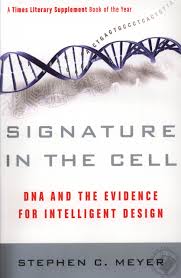
Atheist scientists, including Richard Dawkins, have postulated that the amount of information inside of even the simplest DNA molecule that could have existed as life began in our universe is equal to 1,000 23-volume Encyclopedia Brittanica sets, which is equivalent to about a MILLION typed pages of information.
Where did that information come from?
Let's break this down a bit further. Our DNA is made up of a language. Just like a computer code is made up of a series of ones and zeroes, so too our DNA is made up of a combination as well.
Except instead of ones and zeroes, our code exists of 4 letters, A, C, T, and G. Those stand for adenine, cytosine, thymine and guanine.
I don't want to get too complex with it, but just know that the combination of letters inside the DNA of every cell in your body directs the entire makeup of your entire body. The video below explains a bit more:
The Watchmaker Argument
Let's take a quick break from our science exploration to make a philosophical observation.
William Paley, an 18th century philosopher, made his famous watchmaker argument, which points to God. I explain further in the video below:
OK, let's get back to science now as we close out this section.
What are Irreducible Complexities?
Let's close out this section by talking about something called, "irreducible complexities". Dr. Michael Behe coined this term in his 1996 blockbuster book, Darwin's Black Box, and in it he points out that there are things in nature which can NOT be explained by Darwin's gradualistic explanation.

This quick video explains a bit of what I am talking about:
The video below goes into a bit more detail on one of the most amazing irreducible complexities, the "Bacterial Flagellum", and how it actually works.
So in this section, we have covered the difference between macroevolution and microevolution, the Cambrian Explosion, the so-called icons of evolution, the specified complexity of DNA, the watchmaker argument, and irreducible complexities.
In this next section, we will delve into the fine-tuning of the universe, which in and of itself, is compelling enough evidence to stun even the most ardent evolutionary scientists.
7. Fine-Tuning
In this section, we will be exploring some of the amazing evidence that keeps many Darwinian evolutionists up at night.
The Anthropic Principle basically states that it seems like the universe was created specifically for us, as humans.
There seems to be a "fine-tuning" in all the dials of the universe which make our planet, Earth, habitable for us to live in.
Here is a quick "definitions" video for some of the content we will be covering in this section:
I discussed, in the video above, the videos by Dr. William Lane Craig. Here is a great one on Fine-Tuning that he put together that will more fully explain this concept:
As you study these anthropic constants, the data is just astounding.
Here in one final quick video in this section, on the Teleological argument.
8. Did Jesus Claim to Be God?
OK, so we have discussed how science points to the fact that a creator God most likely designed the universe.
But who is that Creator? And why should we think Jesus was the Son of God? Did He ever actually claim to be God?
Yes He did, and we will explore where exactly He does.
Who is the Son of Man?
So let's talk about this phrase, "son of man". Who is the son of man?
Jesus is referred to as son of man more than 80 times in the New Testament, mostly by Himself. So what does son of man mean? Daniel 7:13-14 explains what it means quite well, and I explain in this video:
In Mark 14:61-64, the high priest asks Jesus pointedly, "Are you the Son of the Blessed One (God)" and Jesus replies, "I am..." and then goes onto again explain that He is the divine Being who has an everlasting kingdom, and sits at the right hand of God the Father.

So why did the high priest tear his clothes; it is because Jesus had committed maybe the ultimate offense, claiming to be God; thus the blaspheme.
Here is a video which explains this further.
Jesus also says, in John 8:58, "Before Abraham was, I Am." That word for "I Am" is the same word for when God tells Moses, "Tell them I Am sent you", (Exodus 3:13-15) which is another clear indication of Jesus revealing His divinity.
There are many other places in the Gospels where Jesus claims to be the Son of God. A few of these are explained in the video below.
Either Lord, Liar or Lunatic
20th century philosopher, C.S. Lewis popularized the notion that Jesus could only be one of three things, either Lord, liar or lunatic.
This is to combat those that try to say that Jesus was a good teacher. Jesus didn't leave any room to just be a good teacher. Why?
Because this Man was running around telling people He was God. If there was someone downtown screaming out to everyone that they were God, they too would fit this description.
Either they are not God, and are greatly mistaken (lunatic), or they know they are not God and are lying (liar), or they are actually Lord, and we should bow down to them and worship them. We would not call these people great teachers. It is the same with Jesus. Here is a quick video that talks a bit about this.
Jesus Fulfills Prophecy
Another important evidence supporting Jesus' Divinity was the prophecies that He fulfilled. It is absolutely astounding when you begin to track down each one, written sometimes hundreds of years before Jesus' earthly ministry.
From what town He would be born to how He would die, from what family He would come from to the type of ministry that He would carry out, the prophecies are dynamic and many are very detailed.
We talk about some of them in the video below.
9. Jesus' Life, Death and Resurrection
So how do we know Jesus isn't some fairy tale? How do we know He even existed? What if people just made Him up to try and control others?
Well, from a scholarly perspective, these views are absolutely ridiculous.
I would like to say at the outset that liberal scholars don't even use alternatives to the resurrection anymore in formal debate, because they have all been debunked long ago.
But we will go through them anyways so that you will be able to know how to counter the arguments.
Jesus is an historical figure, and not just from the Bible. There is what's called extrabiblical evidence for Jesus (evidence outside of the Bible) from 1st century non-Christian writers like Tacitus, the letter from Pliny the Younger to Emperor Trajan, Jospehus, and others.

99% of scholars, if not more, would say that there actually was a person named Jesus of Nazareth, who lived in the 1st century AD.
And probably 95% of all scholars (liberal and conservative) would agree that He was crucified on the cross under Pontius Pilate. Again, not just because the Bible says it, but because there are extrabiblical references (references outside the Bible) to this by non-Christian sources.
So if we know He lived and walked the earth, and we know He was crucified on a cross, then that leaves the all-important question, "What happened to His body?"
The video below explains a bit further:
So as the video above discusses, within weeks of Jesus rising from the dead, there are literally thousands of Jews who have now become followers of Jesus, and all the Jewish leaders, or Roman leaders, had to do to silence this rebellion was to produce the body of Jesus.
But they couldn't, of course, because He rose from the dead bodily.
Well, someone may say, maybe He didn't rise up. Let's talk about some of the alternatives.
Resurrection Alternative 1 - Hypnosis Theory
Maybe Jesus just hypnotized the disciples into thinking they had seen the risen Lord.
The problem with this theory is that Jesus didn't just show up to one person at a time.
He showed up to all the disciples at once, and hypnosis doesn't work in group settings, for people all have different experiences.
Plus, He showed up to over 500 people at once, again eliminating hypnosis as a viable option.
This video below explains this a bit.
Resurrection Alternative 2 - Swoon Theory
Maybe Jesus never really died on the cross. Maybe He just swooned, or fainted, and so they took Him off the cross, and then He got up from the tomb, still alive.
The problem with this theory, firstly, is Jesus' flogging. Jesus was whipped and bloody. Before I proceed, watch this quick video on the whip used to flog Jesus.
Have you ever gotten a cut on the bottom of your foot? How does it feel to walk even a few steps on that foot?
Well let's play this out just for fun though. So Swoon Theory says that Jesus was beaten and bleeding from his shoulders, down his back, passed his buttocks, and onto his thighs, and is laying there in a tomb for multiple days, without food or water.
Then somehow, He manages to get up, walk over to the 2-ton stone door, roll that away, still bleeding, walk out the door, fight off the Roman guards keeping watch, whose lives depended on them keeping watch, then walk miles to where His disciples were, and appear to them, and say, "I am the Way, the Truth and the Life, follow Me."
Can you imagine the disciples thinking to themselves, as He is bleeding all over the ground, "Wow, I really want that sort of resurrected body as well."
No, they would have said, "Get this guy a doctor!"
Here is a quick video which explains this absurdity.
Ok so let's move to the third alternative people like to try and propose, instead of the resurrection.
Resurrection Alternative 3 - The Disciples Stole the Body
Maybe the disciples just stole the body, and told everyone that He rose from the dead.
The problem with this theory is that the disciples would not die for a lie. Would you?
If you knew something was a lie (something that you made up), and someone was about to kill you for it, would you stick to your lie?
Doubtful. Additionally, this doesn't explain the conversions of St. Paul, and James the brother of Jesus (who did not believe in Jesus as the Son of God until after He rose from the dead).
Here is a quick video that discusses this point.
If you want an excellent resource on who Jesus (the Son of God) was, both in the Old Testament, and in the New Testament, I highly recommend you check out the book, Putting Jesus in His Place, by Rob Bowman Jr., and J Ed Komoszewski.
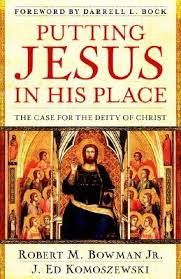
10. Reliability of the New Testament
One of the most important questions that Christian apologetics can answer is to the authenticity of the New Testament.
How do we know it's authentic? How do we know it didn't change over time?
The New Testament documents are 27 documents, written on 27 different scrolls, by 9 different authors, over a 20-to-50 year period in the 1st century AD.
These individual writings have since been collected into one book that we call the New Testament.
As Dr. Frank Turek and Dr. Norman Geisler talk about in their book, I Don't Have Enough Faith to Be an Atheist, there are 2 questions that we need to answer concerning the New Testament documents.
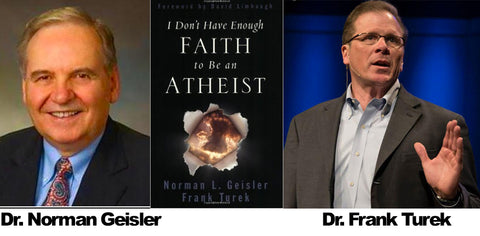
First, do we have accurate copies of the original documents written down in the 1st century?
And second, do the original documents speak the truth?
We will seek to address both these questions in this section.
It is important to note that the New Testament writers did not gain popularity or notoriety with their writings, as many in the world do today.
Instead of gaining power, the New Testament writers got just the opposite: submission, servitude, torture, and even death.

The New Testament writers, with the possible exception of Luke, were all Jews and already believed that they had the one true religion.
This nearly 2000-year-old religion (at the time) asserted that they the Jews were the chosen people of God.

Now why would the Jews, who converted to Christianity, risk persecution, death, and possibly eternal damnation, to start something that wasn't true, and elevated non-Jews into the exclusive relationship that they alone claimed to have with the Creator of the universe?
The New Testament writers had to have witnessed some strong evidence to turn away from the beliefs and practices that had defined them and their forbearers for such a long time.
Who Were the Gospel Writers?
So who were the writers of the Gospels, and do we have any evidence that these were the actual writers?
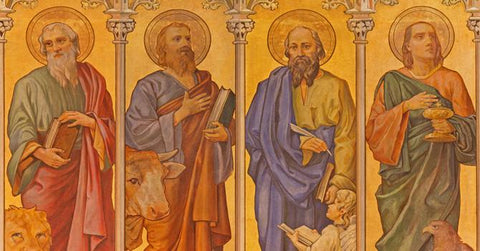
Matthew and John were both part of the original 12 disciples. John was actually part of Jesus' inner circle, in addition to Peter and James.
So Matthew and John were actually eyewitnesses of these events.
Mark, the writer of what is thought to be the earliest gospel, traveled with Saint Paul for extended periods of time, but probably received most of his gospel account from Saint Peter.
The oldest, and probably most significant testimony affirming the writers of the gospels comes from Papias, writing in AD125.
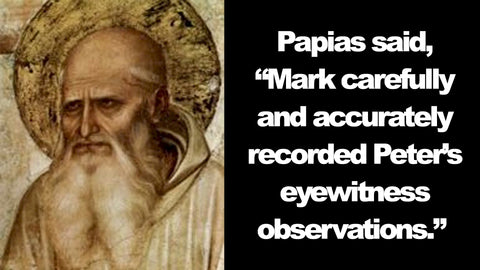
He specifically affirms that Mark "carefully and accurately records Peter's eyewitness observations".
In fact, he said Mark made no mistake, and did not include any false statement. And Papias said that Matthew preserved the teachings of Jesus as well.
What about Luke?
Well, Irenaeus (pictured on icon below), writing in about AD180, in Adversus Haereses 3.3.4, confirms the traditional authorship of Luke.

He also affirms Matthew, Mark and John as well.
On at least one occasion, Luke is known to have met James, the brother of Jesus. And there is reason to believe that he received much of his information from Philip and his family in Caesarea, as it is recorded in Acts 21:8 that he stays with him.

After Paul's 2-year detention in Caesarea, Luke went with him to Rome, where we find him in the company, along with Mark, in about the year AD60. This is recorded in Colossians 4:14 and Philemon 1:24.

Manuscripts
So what do we have with the New Testament? Do we have the original scrolls written by the original authors?
For the New Testament, we have what are called manuscripts, which are copies of the original documents.

However, the dates of some of the documents that we currently have today go back almost into the 1st century AD, when they were written, and many into the 2nd and 3rd centuries AD.
Keep in mind, this is before the days of type writers and computer documents.

When the New Testament documents were written, they spread quickly. These documents were copied many times, with copies being sent off to far-away Christians who could also hear the good news.
And when those Christians received these documents, or manuscripts, they copied the good news of the documents as well, and sent them off to other churches.
Now how could this dissemination of texts, without any central control, be uniformly controlled?

It couldn't, yet if you examine how similar the manuscripts are to each other, it is clear that the copyists took great care in copying everything as accurately as possible, because these manuscripts, passed down over hundreds of years, are so similar to each other.
We have these copies of the New Testament commencing within a couple generations from the writing of the originals, whereas in other texts, maybe 5, 8 or 10 generations elapse between the writings of the originals and the earliest surviving copy.
The quantity of New Testament material is almost embarrassing when compared with other works of antiquity.

There are over 5,000 Greek manuscripts of the New Testament, not to mention another 24,000-plus in other languages.
Next to the New Testament, the oldest amount of manuscript testimony that we have is of Homer's Illiad, which was like the Bible of the ancient Greeks.
Yet there are fewer than 650 Greek manuscripts of it today. Homer's Illiad was composed in 800 BC, yet the earliest manuscripts that we have are not until the 2nd century AD.
Compare the 2nd most amount of manuscripts (less than 650) with the most amount of manuscripts (0ver 5,000 just in Greek), and there is no comparison between the New Testament and other works of antiquity.
Chester Beatty Biblical Papyri

The most significant manuscript to come to light was the "Chester Beatty Biblical Papyri", discovered about 1930.
Of these Beatty biblical papyri, #1 contains portions of the 4 gospels, as well as Acts and dates to the 3rd century AD. Papyrus #2 contains large portions of the letters of Paul and the book of Hebrews, and dates to about AD200.
And papyrus #3 has a sizable portion of the book of Revelation, and dates to about the 3rd century AD.
Rylands Papyrus P52
Then, in 1934, C.H. Roberts of St. John's college, Oxford, was sorting through the papyri at the John Rylands Library, in Manchester, England.
He immediately recognized this as a preserving portion of John's gospel.

He was able to date it from the style of the script. He concluded that it originated between AD100 and AD150.
Many other prominent paleographers, including Sir Frederich Kenyon, Sir Harold Bill, Adolf Diessman, and others have agreed with this assessment.
Early Church Fathers
Now let's take a look at some of the early Christian writings, outside of the Bible, to see if they confirm what the Bible that we are holding today says.
Interestingly, the early church fathers, men of the 2nd and 3rd centuries AD, men like Justin Martyr, Clement of Alexandria, Irenaeus, Origen, Tertullian, etc. quoted from the New Testament document that we have today 36,289 times.
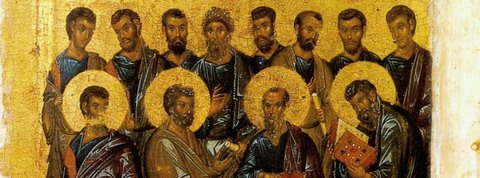
Why is this important?
This shuts down the skeptic's assertion that the canon of our New Testament, the books we have today, were just added in hundreds of years later by some religious council.
It also proves that these books that we now have, the New Testament, were written early, if the early Christians who lived in the 2nd and 3rd centuries were already quoting them.
Clement, writing from Rome in AD95, quotes from Matthew, Mark, Luke, Romans, 1 Corinthians, Ephesians, 1 Timothy, Titus, Hebrews, James and 1 Peter.
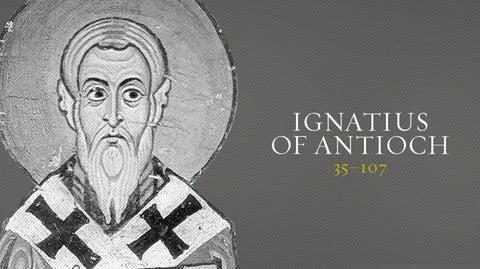
Ignatius, writing from Smyrna in Asia Minor in AD107, quotes from 24 of the 27 books that we currently have in our New Testament today.
Polycarp, the disciple of John, who lived from AD69-155, writing from Smyrna in Asia Minor in AD110, quotes from 18 of the 27 books that we currently have in our New Testament.

Polycarp and his disciple, Irenaeus, collectively quote from 23 of the 27 books that we currently have in our New Testament today.
I think you get the point.
They were quoting from these books because these books were first of all already written, and secondly, because they were authoritative.
Since Clement was in Rome, and Ignatius and Polycarp were hundreds of miles away in Smyrna, this shows that the New Testament documents that they were referring to, must have been written much earlier.

Otherwise, they could not have been circulated across the ancient world at that time.
Here is a video we put together that goes over some more information on the reliability of the New Testament.
11. Biblical Archaeology
Biblical archaeology is our last section but certainly not our least, in terms of evidence.
The evidence is overwhelming from the places and people mentioned in the Bible, which have been corroborated in the dirt.
We have already done extensive coverage of this in both our "21 Greatest Old Testament Biblical Archaeology Discoveries Ever (2019)" and our "17 Greatest New Testament Biblical Archaeology Discoveries Ever (2019)" blog posts, so you should definitely check those out if you have not already.
And here is a video that highlights some of our greatest finds in the New Testament:
Thank you so much for checking out our Ultimate Guide to Christian Apologetics and Defending Your Faith.
Hopefully, you have gotten a TON of information from this blog, and can share that information with others so we change this world for Jesus.
See Our Apologetics Board Game
If you would like to study further, check out our Apologetics Board Game at:
https://welcometotruth.com/products/welcome-to-truth-board-game

And remember, Jesus loves you!

